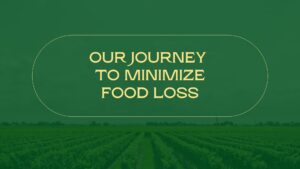
Food waste is a pressing global issue, and the Food -E consortium countries comprising Greece, Spain, Cyprus, Poland, and Germany are taking significant steps to combat this challenge. From production to consumption, these nations are grappling with unique obstacles while implementing diverse strategies to reduce food waste. Here, we will provide an overview of the state of food waste in each country and shed light on the initiatives being undertaken to address this critical problem.
Greece: Aiming for Sustainable Production and Consumption In Greece, food waste permeates every stage of the food supply chain. Challenges such as overproduction, poor handling practices, inadequate storage facilities, and inefficient transportation contribute to substantial food loss. The Mediterranean diet, emphasizing perishable fruits and vegetables, adds complexity to the issue. To tackle this problem, the Greek government has developed a comprehensive National Action Plan for the Prevention and Management of Food Waste. This plan aims to achieve a 50% reduction in food waste by 2030 through sustainable production practices, improved infrastructure for food donation, and raising public awareness.
Spain: Striving for Sustainable Food Systems Spain, being one of Europe’s largest food producers, grapples with significant food waste challenges. The Spanish Ministry of Agriculture, Fisheries, and Food’s report highlights a staggering statistic, indicating that approximately 33% of the country’s total food production goes to waste. The focus is on reducing food waste in households, the hospitality sector, retail, and the food industry. To address this, the Spanish government has formulated a National Strategy for the Prevention of Food Waste, promoting sustainable practices and awareness campaigns. Local initiatives such as “La Despensa” in Barcelona and “Kilometroak” in Navarra showcase localized efforts to combat food waste and promote sustainability.
Cyprus: Tackling Household Waste and the Tourism Sector Cyprus faces concerns regarding household food waste, with an average of 47.1 kg wasted per person annually. The most commonly wasted items include fruits, vegetables, and bread. Furthermore, the country’s significant tourism sector contributes to food waste. It is crucial to undertake measures to minimize waste in other sectors of the food supply chain. Efforts should focus on promoting awareness, encouraging sustainable consumption, and developing initiatives within the tourism industry to address this issue effectively.
Poland: Minimizing Food Losses Poland grapples with an annual food waste amounting to approximately 9 million tonnes, primarily originating from households, the food service sector, and the food industry. Significant losses occur during the production and processing of fruits and vegetables. The Polish government’s “National Plan to Reduce Food Loss and Waste” aims to achieve a 50% reduction in food waste by 2030. Non-governmental organizations such as “Foodsharing” and “Zero Waste Poland” play essential roles in redistributing surplus food and promoting sustainable lifestyles.
Germany: Combatting Food Waste Across the Supply Chain In Germany, an estimated 12 million tons of food are wasted annually. Overstocking and unsold products in the retail
sector contribute significantly to this waste. Germany has implemented comprehensive policies, including awareness campaigns, improved labeling, and food donation initiatives, to combat food waste. Voluntary agreements with supermarkets and initiatives like “food sharing” have gained prominence. However, ongoing research and policy development are necessary to develop effective strategies for waste reduction and sustainable consumption.
Food waste remains a shared concern among the aforementioned countries. Each nation faces unique challenges, ranging from overproduction to consumer behavior, in addressing this issue. However, concerted efforts are underway to raise awareness, promote sustainable practices, and implement initiatives targeting food waste at various stages of the supply chain. Together, we can set ambitious targets and monitor progress, holding each other accountable to ensure a sustainable and efficient food system for the benefit of present and future generations.
